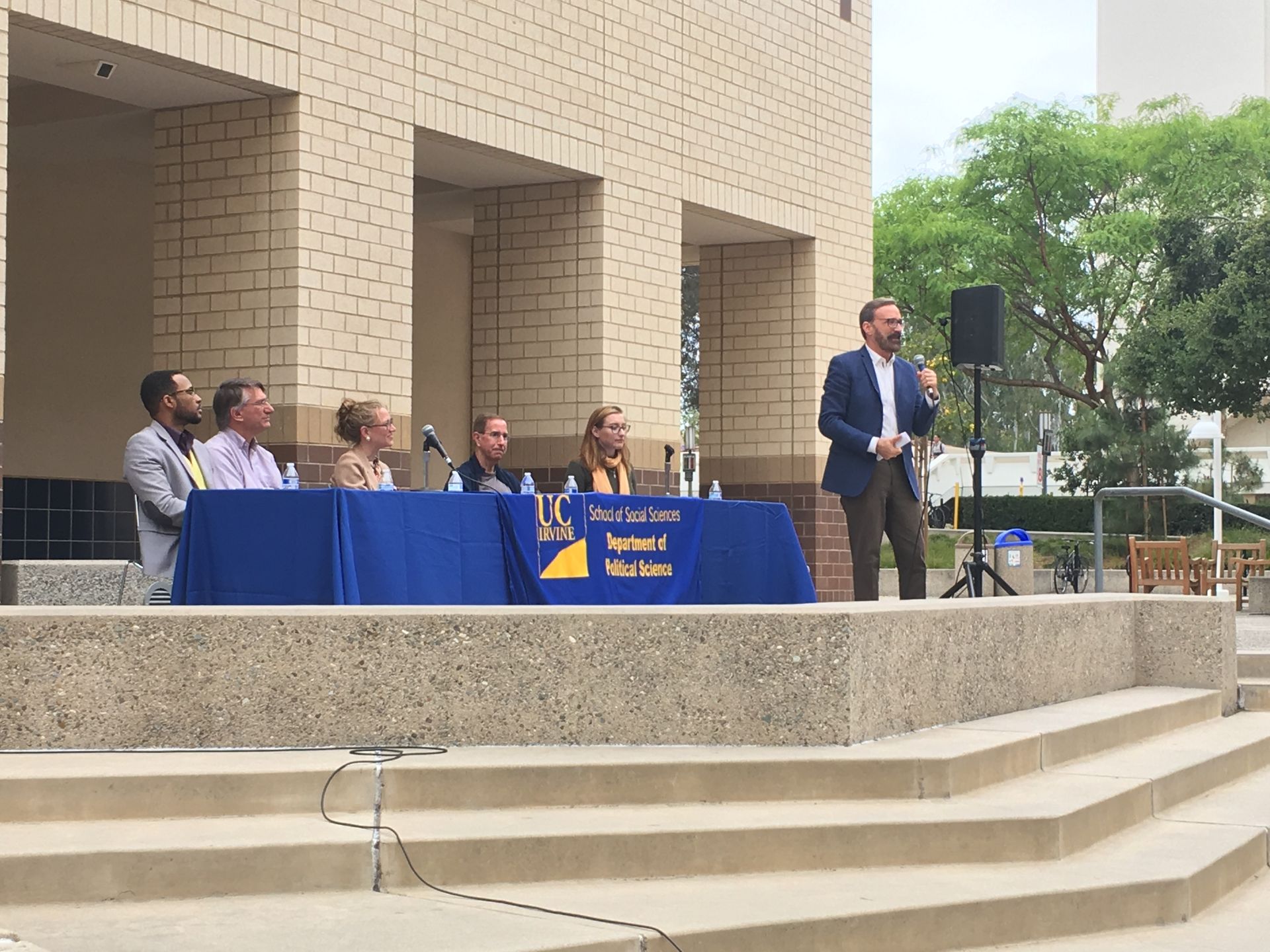An event detailing the significance of this year’s primary election was hosted by UCI’s Department of Political Science within the School of Social Sciences last Thursday, featuring panelists including political science professors and students.
The speakers were Bill Maurer, professor and dean of the School of Social Sciences; Berna Idriz, political science student; Louis DeSipio, professor of Chicano/Latino Studies and political science; Davin Phoenix, assistant professor of political science; Danielle Thomsen, political science student; and Marty Wattenberg, professor of political science.
“Those of you that feel [your] vote doesn’t really matter, those of you that [wonder] what really is the impact of the primary if it’s not making the final decision, those of you that feel not very informed and think that the avenues to getting informed aren’t very clear: this is for you,” Phoenix said.
He noted that the primary electorate is “much older and much less racially diverse than the actual population of California.” Phoenix focused on the statistics related to the racial disparity seen in primary elections.
“When we look at the turnout among blacks, Asians, and Latino Americans, we’re finding turnout [percentages] in the range of high-20s to maybe mid-30s, compared to just about 50 percent for whites. So, that is radically re-shaping the electorate,” Phoenix said.
Phoenix conducted a survey using his undergraduate students to get a sense of why primary elections were or weren’t important them, and why they consistently voted or did not vote in the elections. He noticed some “pretty consistent themes that emerged.”
In terms of why the primary doesn’t seem all that important, students felt like “it doesn’t really cause any changes,” “[they] don’t feel very informed and don’t want to make a bad decision,” and they aren’t very political or “don’t know who these people are,” Phoenix said.
Phoenix also acknowledged the legitimate concern of students who want to make informed decisions, but have not been exposed to information regarding the candidates and their platforms and have not had the time to conduct extensive research independently.
“To what extent are news outlets not providing you with vital information about the primaries, about the candidates, and about the states? I’ve actually watched a lot of the news. I saw a lot about the royal wedding, but the only thing I’ve learned about the candidates is from the commercials…between the actual news segments,” he said. “So you have to think about the culpability and the responsibility of these different fact groups of not giving you the different resources and opportunities that you’ll take advantage of.”
“If enough of the people on this campus actually take on that act of defiance and vote…you will in turn force these political elites and machineries to no longer ignore you in their efforts to reach out,” said Phoenix.
Professor Louis DeSipio spoke on topics that he felt would be important in the 2018 elections, which included immigration and some of the local congressional races.
DeSipio believes that immigration is a topic that may influence the outcomes of a few Senate races, but does not foresee significant change happening in the Senate. He hopes that the issue of immigration may give Democrats a slight competitive edge in the Senate, but feels that the most influence that can be had will happen in the House of Representatives.
“The most competitive districts are districts like ours, right here,” DeSipio said. “Suburban districts that might have tilted Republican in the past, but have a more energized Democrat electorate.”
UCI will be hosting early voting at the flagpoles next Tuesday, May 29.
“If you’ve filled out your vote by mail or you’re going to go to the polls, you can come to UCI — to the front of the flagpoles — and spend a couple of your minutes [voting],” said Idriz.
“A couple of years ago, we had a similar event to this right after the presidential elections. We heard from our faculty and students about the real importance in American democracy of two things: your voice and your vote” said Dean Maurer.





